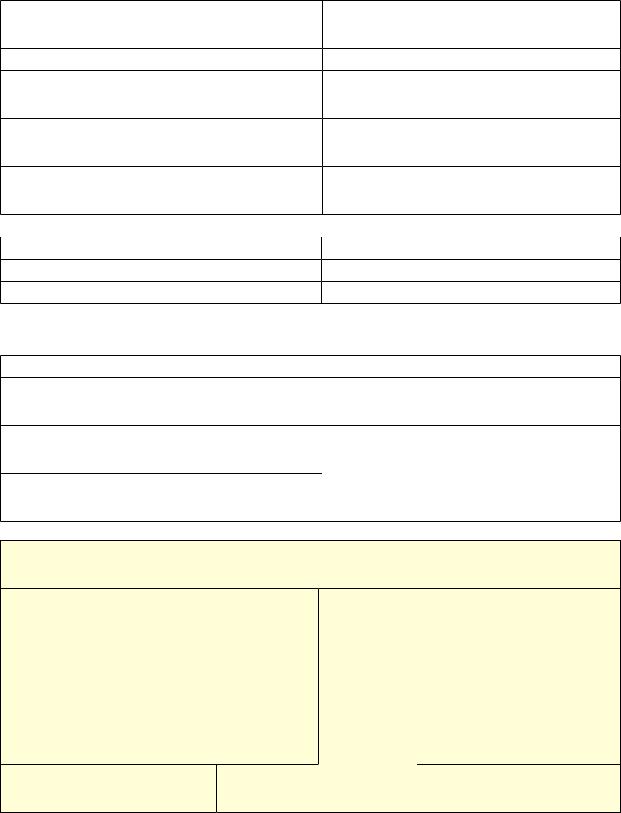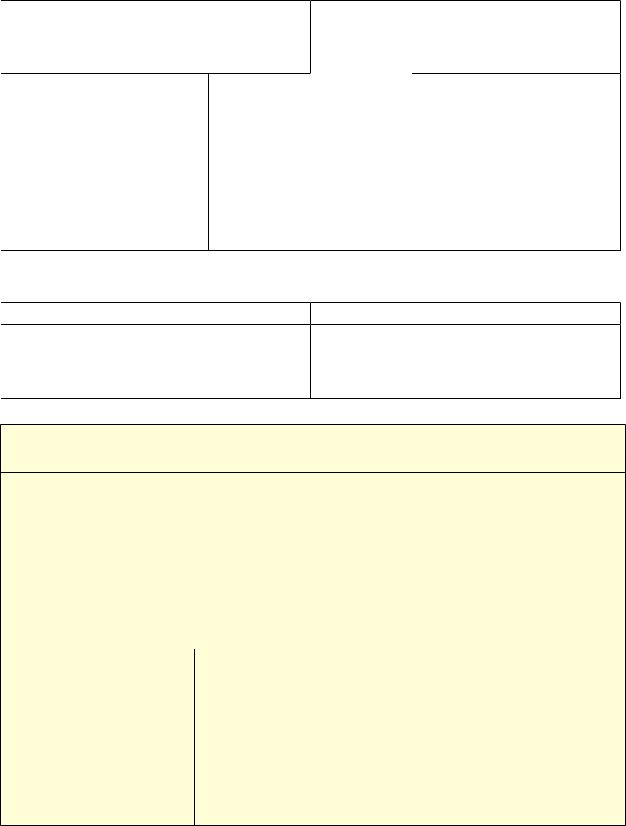
Навч_Пос_бник_Лазарева_Ковтун
.pdf
flight, you’ll be provided with excellent meals. Thus, the Airline Service does its best for you to enjoy the flight. Look onto the ground when the plane is going down. On and on you fly with the ever-changing scenes below – villages, fields and hills, rivers and valleys, each following the other with great speed, till you arrive at your destination and safely land at an airport. In fact, there’s no better way of traveling than by air.
Дайте відповіді на запитання.
1. Is modern life possible without traveling? 2. Which is the fastest way of traveling? 3. What information does a stewardess (air-hostess) give passengers on a plane board? 4. What does the ground look like from a flying plane? 5. Why don’t some people like to travel by planes?
☺ Smile!
Some Murphy Laws For Frequent Flyers
∙No flight ever leaves on time unless you are running late and need the delay to make the flight.
∙If you are running late for a flight, it will depart from the farthest gate within the terminal.
∙If you arrive very early for a flight, it inevitably will be delayed.
∙Flights never leave from Gate #1 at any terminal in the world.
∙If you must work on your flight, you will experience turbulence as soon as you touch pen to paper.
∙The crying baby on board of your flight is always seated next to you.
∙The less carry-on luggage space is available on an aircraft, the more carry-on luggage passengers will bring aboard.
7.3. Письмові завдання
Вправа 2. Уявіть, що ви зустріли іноземного студента, який приїхав на студентську конференцію. Дайте відповіді на його запитання.
1. Could you tell me how to get from Pushkinskaya metro station to Shevchenko garden? 2. What’s the shortest way from NTU “KhPI” to the Historical Museum? 3. Where is the nearest I? 4. Would you show me the way to the Students’ Palace?
51

7.4. Граматика. Система видових та часових форм англійського дієслова. Present Simple Tense. Формування та вживання
Основні форми англійського |
Приклади |
дієслова |
|
Інфінітив (Infinitive) |
to work; to write |
Минулий неозначений час (Past |
worked; wrote |
Simple) |
|
Дієприкметник минулого часу (Past |
worked; written |
Participle) |
|
Дієприкметник теперішнього часу |
working; writing |
(Present Participle) |
|
Дав види стану дієслова |
Приклади |
Активний стан (Active Voice) |
He often opens the window. |
Пасивний стан (Passive Voice) |
The window is opened very often. |
Present Simple |
|
|
|
Випадки вживання |
Приклади |
Загальновідомі факти та істини |
The sun rises in the east. – Сонце |
|
підіймається на сході. |
Повсякденні дії, що повторюються |
I wake up at 7.00 every morning. – Я |
|
прокидаюся кожного ранку о сьомій. |
В умовних реченнях після if – якщо, |
I’ll help you if I have time. – Я |
in case – у випадку, when – коли |
допоможу тобі, якщо матиму час. |
Відмінювання дієслова to work (працювати) у Present Simple Tense
(дія, яка відбувається звичайно) |
|
|
I work |
|
I do not work |
He works |
|
He does not work |
She works |
|
She does not work |
It works |
|
It does not work |
We work |
|
We do not work |
You work |
|
You do not work |
They work |
|
They do not work |
Do I work? |
Yes, I do |
No, I don’t |
Does he work? |
Yes, he does |
No, he doesn’t |
52

Does she work? |
Yes, she does |
No, she doesn’t |
Does it work |
Yes, it does |
No, it doesn’t |
Do we work? |
Yes, we do |
No, we don’t |
Do you work? |
Yes, you do |
No, you don’t |
Do they work |
Yes, they do |
No, they don’t |
Вправа 3. Розкрийте дужки, використовуючи дієслова у Present Simple.
1. My little sister (to go) to bed at nine o’clock every day. 2. We (to wash) our faces every morning. 3. She (not to have) maths lessons every day. 4. Your sister (to go) to school every day? — Yes, she ___. 5. My brother (not to like) drinking coffee. 6. My mother always (to take) a bus to get to work. 7. My friend (to live) near his office, he usually (to walk) there. 8. You (to talk) to the members of your family every day? — Yes, I ___. 9. I (to be) very tired, I (not to want) to have dinner. 10. You (to come) home at six o’clock? — No, I ___.
Вправа 4. Запишіть речення у питальній та заперечній формах. Перекладіть речення.
1. The students usually greet this famous lecturer warmly. 2. When I fall ill, my mother sends for the doctor. 3. She looks after the patients well. 4. My father looks through newspapers every morning. 5. He gives my brother English lessons. 6. We turn on the light when it is dark. 7. Betty often takes her younger brother for a walk. 8. One uses chalk for writing on the blackboard. 9. Nina mispronounces a lot of words. 10. I finish my work at about seven o’clock.
7.5. Домашнє завдання
Вправа 5. Підберіть відповіді до запитань, наприклад: 1 – і.
1 |
Do you change for the |
a Not, yet. I have no small change. |
|
subway? |
|
2 |
Where can I take a bus? |
b No, just on the contrary, you should |
|
|
turn left. |
3 |
Will you go home on foot? |
c Take bus number 3 and get off at the |
|
|
second stop. |
4 |
Will you please change me a |
d The tram stop is just round this corner. |
|
dollar? |
|
5 |
Where shall I change for tram |
e At Lincoln Center, not far from here. |
53

|
number 2? |
|
|
6 |
Has she got on a bus? |
f |
Yes, certainly. I’m not a bit tired. |
7 |
Shall I keep to the right? |
g |
With pleasure, I have a lot of change. |
8 |
How can I get to the zoo? |
h |
No, I’m getting off here. |
9 |
Have you paid your fare? |
i |
Yes, I do. I can get to the university |
|
|
|
only by the subway. |
10 |
Will you get off at the next |
j |
Yes, she has just engaged a seat. |
stop?
Вправа 6. Поставте дієслова в дужках у потрібній формі Preset Simple.
1. My sister (to get) up at eight o’clock. 2. She (to be) a school-girl. She (to go) to school in the afternoon. 3. Jane (to be) fond of sports. She (to do) her morning exercises every day. 4. She (to have) two eggs, a sandwich and a cup of tea for breakfast. 5. After breakfast she (to go) to school. 6. It (to take) her two hours to do her homework. 7. She (to speak) French well. 8. My working day (to begin) at seven o’clock. I (to get) up, (to switch) on the radio and (to do) my morning exercises. It (to take) me fifteen minutes. At half past seven we (to have) breakfast. My father and I (to leave) home at eight o’clock. He (to take) a bus to his factory. My mother (to be) a doctor, she (to leave) home at nine o’clock. In the evening we (to gather) in the living-room. We usually (to watch) TV and (to talk). 9. My grandma (to live) in the country. She (to be) a pensioner.
Вправа 7. Складіть розповідь про те, як ви дістаєтесь з дому до свого ВНЗ, використовуючи активні слова та словосполучення.
Lesson 8. Travelling
8.1. Розмовна тема. Подорожі
Прочитайте та перекладіть текст.Active Vocabulary:
54

vehicle – транспортний засіб; traffic jam – затор на дорозі; alert – пильний; in advance – заздалегідь; discount – знижка; journey – подорож; ticket office
– білетна каса; fine – штраф; to board – сідати у вагон; accommodation – розміщення; coach – вагон; affordable – доступний за ціною; compartment – купе; luggage – багаж; lodging – тимчасове житло; berth – полка в купе; facilities – обладнання; full-fledged – повноцінний; sink – раковина.
Travelling by Train
Travelling by train can really be a fun and a memorable experience. Trains are considered one of the safest and most economical means of travelling. Trains are one of the oldest means of travelling dating back to the 17th century. Since the day they were first used, trains have become an essential means of travelling.
Travelling by train is generally much cheaper than any other fast means of travelling. Moreover, train is one of the most efficient and reliable vehicle in which you don’t have to go through any traffic jams. Travelling by train may be a quite unique and leisurely experience, as you can do so many things while travelling such as: making new friends, taking a walk, chatting with other travelers, playing cards, looking at the views, reading or just sleeping. In short you can have a lot more fun in train than you would have if you were travelling by car which requires you to be alert all the time.
These are some tips for rail travel. Ticketing
∙Be aware that it can be very expensive in some countries to travel by train. Especially high speed trains can be as expensive as – but more convenient than – flying.
∙If you can, book in advance. In many countries you may benefit from a substantial discount.
∙Many countries offer passes, allowing several journeys to be made within a region. Inter Rail (for Europeans) and Eurail (for others) are good value for those who qualify and wish to travel extensively through Europe.
∙Please buy your ticket through the Internet, in a ticket office or a ticket machine before joining the train or otherwise you may have to pay a higher price or a fine.
Boarding and accommodation on board
55

∙Find out if the class of the car you are boarding is in the front, middle or rear of the train and stay on the platform accordingly. Ask the staff on the platform. In some countries, stations are divided into zones and diagrams show you what zone your coach number corresponds to.
∙Many trains have first class accommodation. This can be available in some cases, or very expensive in others. You are paying (typically) for a wider seat and a much emptier compartment. Do not, under any circumstances, travel in first class unless you have a ticket or other permission to do so.
∙Normally, the doors of a train do not open automatically. So to enter or exit a coach you have to push a button on the door or turn a handle.
∙Tuck away your luggage as much as you can. Don’t let it block the way or the seats for other passengers.
∙For overnight journeys, consider investing in a couchette or sleeper compartment, which are often cost-competitive with lodgings for the night. A couchette cabin has 6 berths for sleeping and no other facilities around, while a full-fledged sleeper will have two to four berths and possibly bathing facilities like a sink or a shower.
Дайте відповіді на запитання.
1. When did trains appear? 2. Why travelling by train is sometimes more preferable than by plane or by car? 3. What trains can be more expensive than a plane? 4. Where can you buy a train ticket? 5. In some countries, stations are divided into zones. What do they correspond to? 6. Where do passengers sleep during overnight journeys? 7. How many berths are there in a compartment?
Вправа 1. Висловіть свою думку про подорожі різними видами транспорту, використовуючи такі фрази.
To start with ___; I think (I believe) ___; As far as I know ___; The thing is ___; I doubt that ___; To tell the truth ___; As for me___; The trouble is___; I’m afraid___; I must confess___.
8.2. Читання
The Benefits of a Cruise Holiday
Active Vocabulary:
56

to be faced – стикатись; prospect – перспектива; quandary – скрутне становище; available – що є в наявності; span – короткий відрізок часу; itinerary – маршрут; cabin – каюта; ashore – на березі; to dock – причалювати; arcade game – гральний автомат; to be likely – скоріш за все; like minded people – однодумці; to encourage – заохочувати; mingling – змішування.
More often than not, when you are faced with a prospect of planning a vacation, you find yourself in a quandary. A lot of options are available to you, whether these are railroad trips, vacations in hilly stations, beaches or trekking or even spending time at your parents’. Here, I am going to tell you what you will gain if you choose a cruise above all these. It offers you a big opportunity to go to a large number of places in a short span of time which you otherwise cannot visit. Often it depends on what the itinerary is and what cruise liner you choose.
The best thing is that a cruise package comes with food and it’s especially good for people who tend to eat “more”. In a cruise, you also need to get settled at one place only, in your cabin. You can go ashore to all places from here, and finally at the end of the day come back and rest here. There is no need to go and try to settle yourself at various hotels.
A lot of cruises also come with packages that plan your onshore activities, places you visit and your guides. Before you dock at a place, it tells you of the importance of the place you are going to visit, and the places recommended to visit. You can pre-book an excursion till the night before you are scheduled to dock at a place, depending upon the availability. Once you are on the shore, there will be people present to guide you through the whole excursion. This tends to make your experience a pleasant and memorable one.
On board time also can be spent in a variety of wonderful ways. There will be different types of activities for people with a wide range of interests. It may be arcade games and libraries for the quiet, or pools and parks for the more active ones. There are also special 24-hour bars and clubs for young people and all day activity packages suitable for them. Golf, aerobics, theater, comedy, shopping – you get them all here.
Finally, you are likely to spend the time in your cruise with like minded people and you have a great opportunity to make lifelong friends. Most of the activities are tailored to let people come closer to each other and encourages “social mingling” among the people.
57

You have the option of choosing the route, cruise liners and even the type of a cruise! A cruise guarantees a great experience for you.
Вправа 2. Знайдіть слова в тексті, що відповідають таким визначенням:
1) a period in which a break is taken from work or studies for rest, travel, or recreation; 2) a trip by sea in a liner for pleasure, usually calling at a number of ports; 3) a plan or line of travel; 4) a room used as an office or living quarters in a ship; 5) a short outward and return journey, esp. for relaxation, sightseeing, etc.; 6) a structure that has been built and filled with water for people to swim in; 7) a particular incident, feeling, etc., that a person has undergone.
☺ Smile!
From a passenger cruise ship, everyone can see a bearded man on a small island who is shouting and desperately waving his hands. “Who is it?” a passenger asks the captain. The cruise ship captain replied, “I’ve no idea. Every year when we pass, he goes nuts.”
8.3. Письмові завдання
Вправа 3. Підберіть відповіді до реплік, що наведені нижче.
1.– Can I help you? – ___ – Single or return? – ___ – Here you are. And your change, please.
2.– Would you like sleepers, sir? – ___ – Upper or lower berths? – ___ – Here you are.
3.– When do you want to go, sir? – ___ – When are you going to come back? –
___ – Here you are. Have a nice trip.
a) Single, please. b) I’d like to book 2 train tickets to Paris. c) On September, 15th. d) Yes, please. e) Lower, please. f) On August, 19th.
8.4. Граматика. The Past Simple Tense. Regular and Irregular Verbs. Формування та вживання. The Future Simple Tense.
Формування та вживання.
The Past Indefinite (Simple) Tense
58

Випадки вживання |
Приклади |
Дії, що відбувалися у минулому, або |
I was awarded a Bachelor’s degree in |
факт, що мав місце в минулому |
2000. – Я отримав диплом бакалавра в |
(показники минулого часу: last year, |
2000 році. |
in 1999, yesterday, etc.) |
|
Форма минулого часу для правильних дієслів утворюється додаванням закінчення –ed.
Відмінювання дієслова tо work (працювати) у Past Indefinite Tense правильні дієслова (дія відбувалася в минулому)
I worked |
|
I did not work |
Не worked |
|
He did not work |
She worked |
|
She did not work |
It worked |
|
It did not work |
We worked |
|
We did not work, |
You worked |
|
You did not work |
They worked |
|
They did not work |
Did I work? |
Yes, I did |
No, I didn’t |
Did he work? |
Yes, he did |
No, he didn’t |
Did she work? |
Yes, she did |
No, she didn’t |
Did it work? |
Yes, it did |
No, it didn’t |
Did we work? |
Yes, we did |
No, we didn’t |
Did you work? |
Yes, you did |
No, you didn’t |
Did they work? |
Yes, they did |
No, they didn’t |
Форма минулого часу для неправильних дієслів утворюється різними способами (див. таблицю неправильних дієслів (Appendix III) – другий стовпчик).
Відмінювання дієслова to write (писати) у Past Indefinite Tense неправильні дієслова (дія відбувалася в минулому)
I wrote |
I did not write |
Не wrote |
He did not write |
She wrote |
She did not write |
It wrote |
It did not write |
59

We wrote |
|
We did not write |
You wrote |
|
You did not write |
They wrote |
|
They did not write |
Did I write? |
Yes, I did |
No, I didn’t |
Did he write? |
Yes, he did |
No, he didn’t |
Did she write? |
Yes, she did |
No, she didn’t |
Did it write? |
Yes, it did |
No, it didn’t |
Did we write? |
Yes, we did |
No, we didn’t |
Did you write? |
Yes, you did |
No, you didn’t |
Did they write? |
Yes, they did |
No, they didn’t |
|
The Future Indefinite (Simple) Tense |
|
|
|
|
Випадки вживання |
Приклади |
|
Дія відбудеться у майбутньому |
One day I’ll get married. – Колись я |
|
(tomorrow, in a few days, next week, |
стану одруженим. |
|
one day, etc.) |
|
|
Відмінювання дієслова to work (працювати) у the Future Indefinite Tense
(дія відбувається у майбутньому) |
|
|
I shall work |
I shall not work |
|
He will work |
He will not work |
|
She will work |
She will not work |
|
It will work |
It will not work |
|
We shall work |
We shall not work |
|
You will work |
You will not work |
|
They will work |
They will not work |
|
Shall I work? |
Yes. I shall |
No, I shan’t |
Will he work? |
Yes, he will |
No, he won’t |
Will she work? |
Yes, she will |
No, she won’t |
Will it work? |
Yes, it will |
No, it won’t |
Shall we work? |
Yes, we shall |
No, we shan’t |
Will you work? |
Yes, you will |
No, you won’t |
Will they work? |
Yes, they will |
No, they won’t |
60
